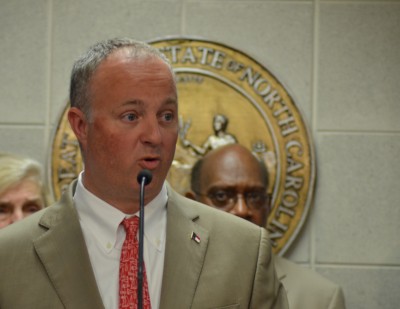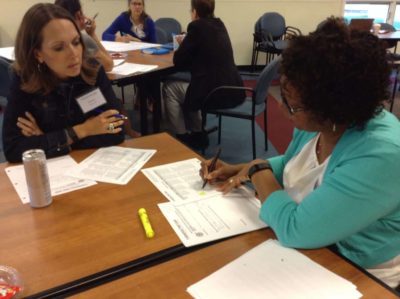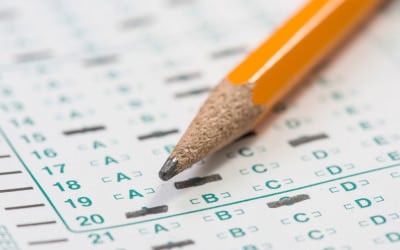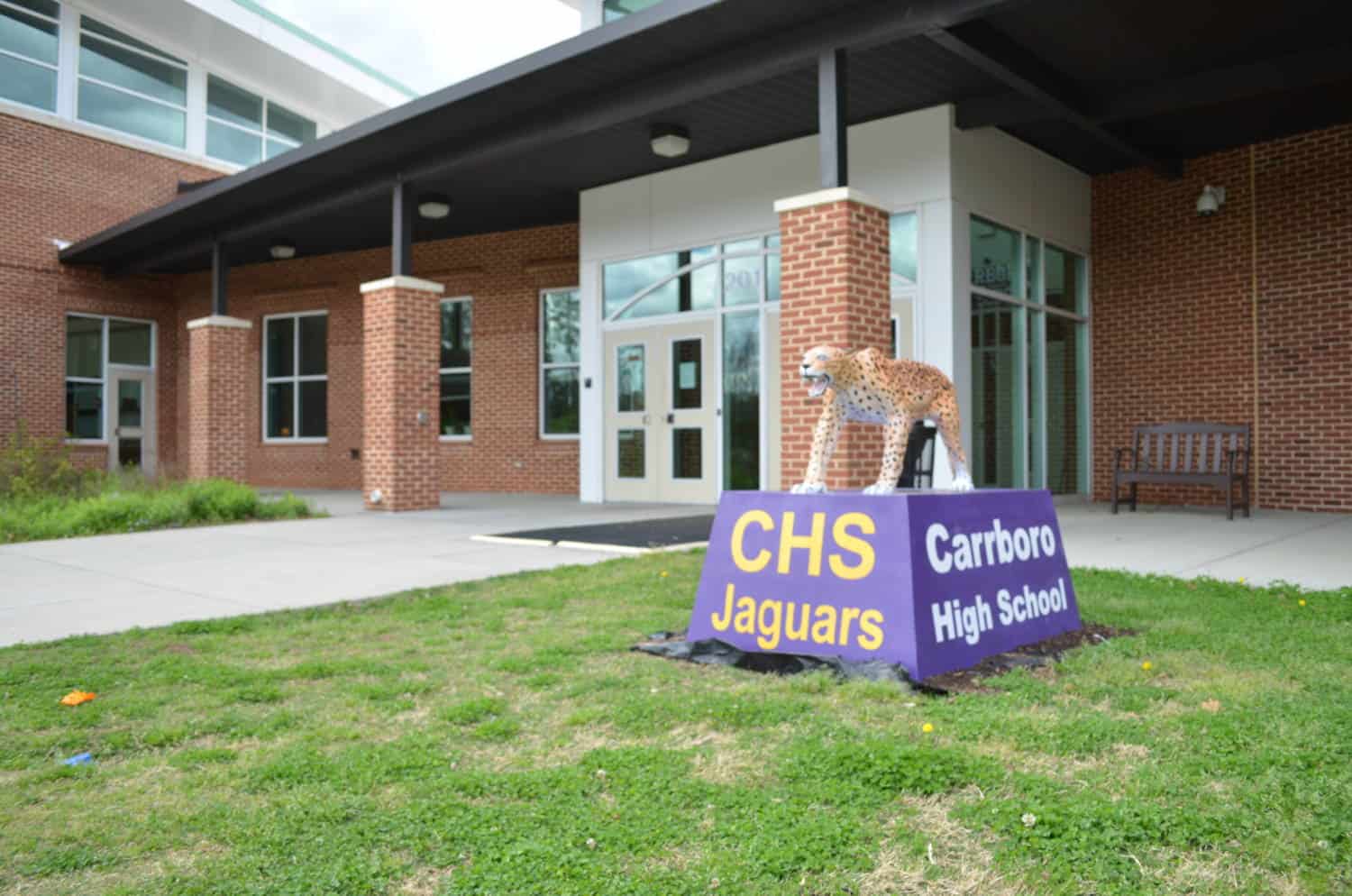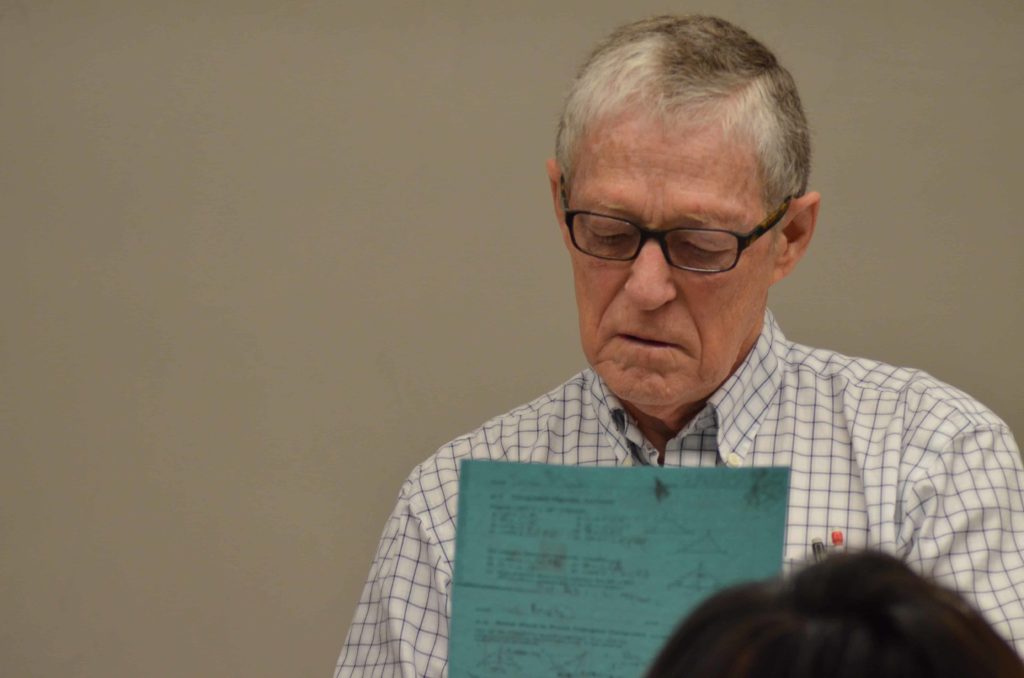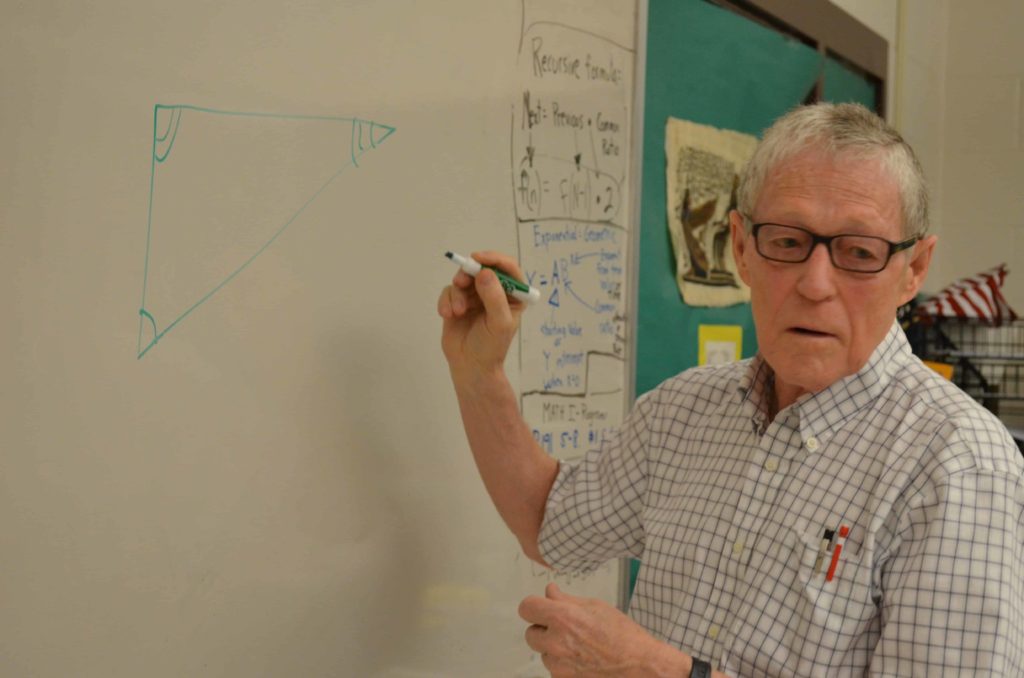In 2009, Ladnor Geissinger retired from his job as a math professor at the University of North Carolina at Chapel Hill. He spent two or three years enjoying his time off before he wanted to do something different. He started volunteering in the Chapel Hill-Carborro City School system.
“After I quit, for a couple of years I didn’t do much of anything, and I thought, ‘I got to get involved in math with the kids.'”
Now, at 79-years-old, Geissinger spends two hours every afternoon helping math students at Carrboro High School.
Geissinger is one of 1,200 volunteers each year participating in a robust program in the Chapel Hill-Carrboro school system that pairs volunteers with students to help bolster the schools’ academics offerings.
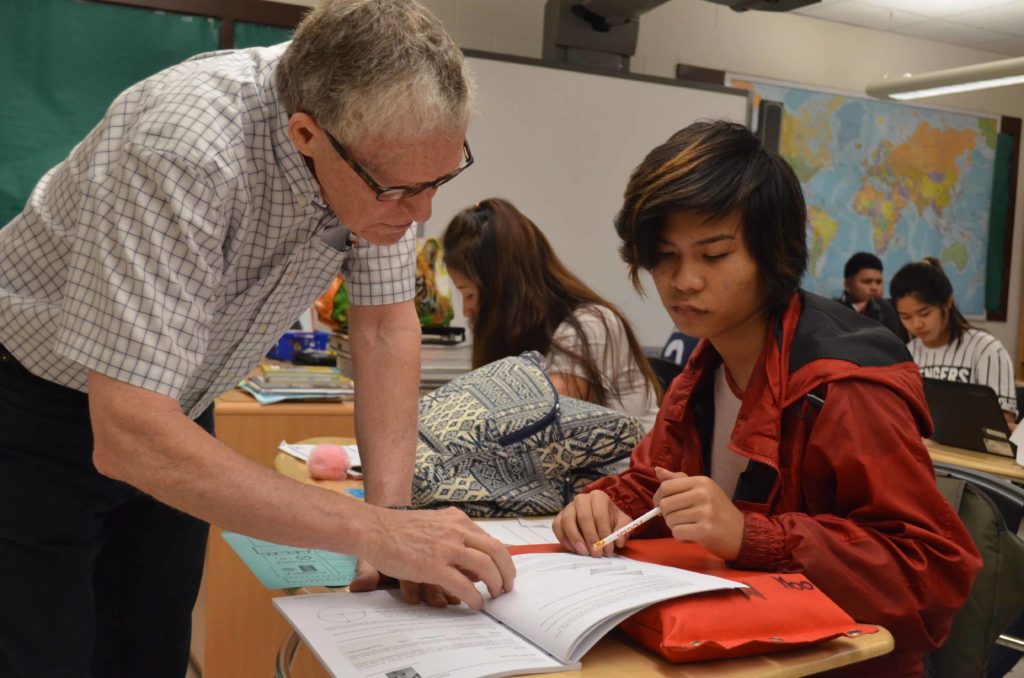
Julie Hennis, coordinator of volunteers and partners for Chapel Hill-Carrboro City Schools, says many school districts have school volunteers, but what her district is doing is unique.
“It’s not common what we do,” she said. “What we do is very different. We have prescribed programs.”
Volunteers are matched with a program, and then given a two-hour training session with specific instructions on how they can help instruction and bolster classroom content. A facilitator shows them how they can participate in class. Hennis said demand for the district’s program is off the charts.
“They come out of the woodwork to come and volunteer in the schools,” she said.
At present, the district has two different offerings that volunteers can take part in — a reading program and a writing program, though they also have volunteers that help out with math. Hennis said the district hopes to launch a full-fledged math program for volunteers soon.
Roess Makgill is a junior at UNC majoring in English with an education minor. She decided to volunteer because she wants to be a teacher one day. She is part of the writing volunteer program at Grey Culbreth Middle School. She chose to do this there because she wants to teach middle schools when she becomes a teacher.
“Usually, I think middle school is where kids start to not really like school anymore and sometimes teachers can let students just slip away,” she said.
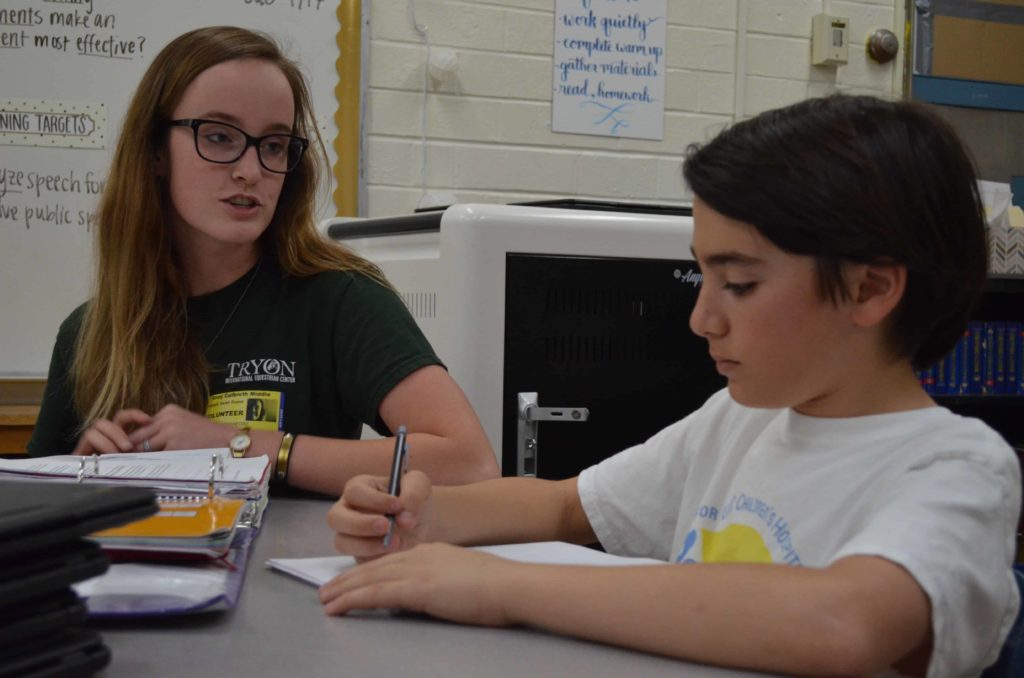
She had middle school teachers that grounded her and sparked her interested in the subjects.
Having volunteers in the classroom is helpful not just for the students but for the volunteers as well. Participating in the middle school has given Gough a vision of what it might be like to be a teacher.
“It’s really opening my mind to the whole education system, what you do as a teacher, how some of the students can get off task really quickly,” she said.
Back at Carrboro High School, Geissinger worked one-one-one with students. He said it was not a big leap going from being a professor to helping high school kids.
“Remember, I’m just here to tutor, to help kids, right, so I’m not teaching the class. I’m just trying to help them understand what’s going on,” he said.
When the difference between high school students and college students is pointed out, he shrugs.
“It’s mathematics, right?” he said.
Jeff Robinson, the teacher in the class, said having Geissinger and other tutors around is a godsend. Carrboro High School has a large population of refugee students who are not native English speakers.
“In here everyone needs individual help, so the more bodies we can get in here the more effective we can be with the kids,” he said.
In fact, Robinson said that without the volunteers, his job would be much more difficult. There are no teacher assistants in high school, and the way his math classes are taught, a teacher can not just sit in front of the class and lecture.
“That’s why the volunteers are so essential,” Robinson said. “When I say essential, that’s not overstating the case.”
Mark Rogerson, another math teacher at the high school, echoes that sentiment. He is excited for a math training program to get off the ground. He said it is especially helpful that the volunteers get training ahead of time. Without that training, having volunteers could end up increasing the workload on the teachers.
“If we have people who come in and already know that ahead of time, then that saves me the time from having to explain it to them or having them try to learn it on the run as they come in every day,” he said. “So I think it’s a great idea.”
Hennis was formerly an assistant principal in the school system. She would see volunteers, but she did not know the preparation that went into having them come into classrooms. Now she is on the other side and sees the benefit that the program brings.
“It’s pretty neat,” she said. “I worked in the district for a long time … I had no idea.”
Recommended reading
